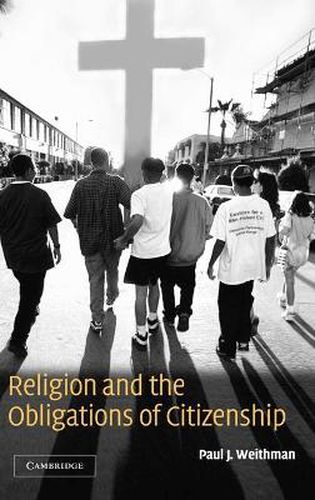Readings Newsletter
Become a Readings Member to make your shopping experience even easier.
Sign in or sign up for free!
You’re not far away from qualifying for FREE standard shipping within Australia
You’ve qualified for FREE standard shipping within Australia
The cart is loading…






In Religion and the Obligations of Citizenship Paul J. Weithman asks whether citizens in a liberal democracy may base their votes and their public political arguments on their religious beliefs. Drawing on empirical studies of how religion actually functions in politics, he challenges the standard view that citizens who rely on religious reasons must be prepared to make good their arguments by appealing to reasons that are ‘accessible’ to others. He contends that churches contribute to democracy by enriching political debate and by facilitating political participation, especially among the poor and minorities, and as a consequence, citizens acquire religiously based political views and diverse views of their own citizenship. He concludes that the philosophical view which most defensibly accommodates this diversity is one that allows ordinary citizens to draw on the views their churches have formed when voting and offering public arguments for their political positions.
$9.00 standard shipping within Australia
FREE standard shipping within Australia for orders over $100.00
Express & International shipping calculated at checkout
In Religion and the Obligations of Citizenship Paul J. Weithman asks whether citizens in a liberal democracy may base their votes and their public political arguments on their religious beliefs. Drawing on empirical studies of how religion actually functions in politics, he challenges the standard view that citizens who rely on religious reasons must be prepared to make good their arguments by appealing to reasons that are ‘accessible’ to others. He contends that churches contribute to democracy by enriching political debate and by facilitating political participation, especially among the poor and minorities, and as a consequence, citizens acquire religiously based political views and diverse views of their own citizenship. He concludes that the philosophical view which most defensibly accommodates this diversity is one that allows ordinary citizens to draw on the views their churches have formed when voting and offering public arguments for their political positions.